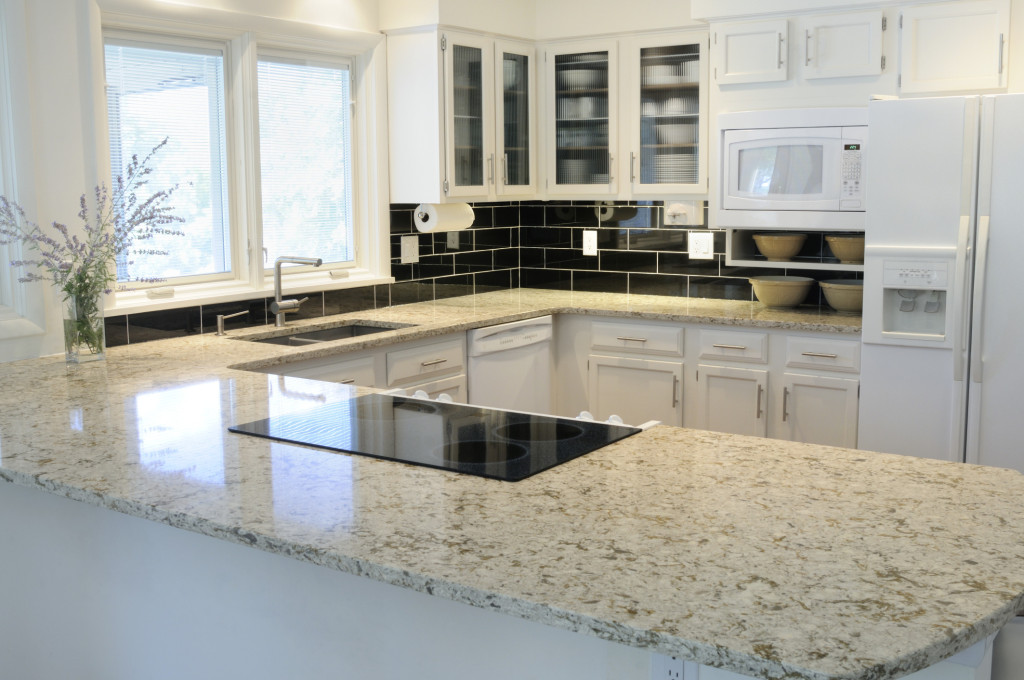Granite Vs Caesarstone Kitchen Benchtop
Ever since the caesarstone benchtops range was introduced to the market, a debate has been raging. Which one is better -- granite or Caesarstone? The granite vs Caesarstone battle continues, but is it time for both sides to call a truce?
Behind one podium stand the traditionalists. When they are speaking, it's easy to become convinced granite is the superior product. After all, granite is a naturally beautiful product that has been used for centuries and can still be found adorning the floors of ancient buildings, looking as stunning today as it did a thousand years ago.
When the time comes for advocates of Caesarstone to speak, though, it's just as easy to see things from their point of view. Engineered from ground quartz and special resins, Caesarstone is, even more, scratch and stain resistant than granite. Because it is a manufactured product, it offers styles and colors that can't be duplicated in a natural stone benchtop.

Maintenance requirements of Granite vs Caesarstone
Caesarstone is a type of engineered stone countertop that is made by combining 93 percent quartz particles with hard resins. The resins work to bind the stone particles together. The result is an extremely dense material, far more so than the more porous granite. This means that a kitchen that uses Caesarstone countertops will not require the application of sealants. By contrast, granite will need to be sealed at least annually for the best protection. If you skip sealing it, you risk the integrity of your countertops. The granite that has not had its annual sealing may start absorbing liquids and potentially be stained over time as the sealant wears off.
Color and textural differences
Both granite and Caesarstone will enhance any type of kitchen. They are each available in numerous textures, patterns, and colors. Quartz countertops have pigment that is added during the manufacturing process and can be colored throughout. Granite will come in its own natural colors and styles. Granite lovers feel that having that natural look that granite provides is irreplaceable. Those who love Caesarstone instead tend to point to its uniformity as the deciding feature for them. No matter which type you choose, both are beautiful and within the same range of price.
Caesarstone and granite resist scratches, dents, gouges, and heat, and both will last a lifetime if proper care is taken. Granite and quartz countertops both come from natural stone although Caesarstone has additional manufacturing steps. While they are both exceptionally hard, quartz slabs are slightly heavier and harder than granite slabs.
Granite is stunning and its natural look is hard to match. In most cases, however, granite is not uniform in its appearance. If you want a uniform color for your countertops, Caesarstone may be a better choice for you. If you instead prefer the unique and beautiful look granite can provide, you can’t go wrong by choosing it instead.
While some people will continue to debate about which is the better choice, designers agree that the best option is the one that meets the individual’s needs and stylistic preferences. In order to determine which works better for you, you’ll want to look at slabs of both.
Final Choice
Of course, the final decision is always up to the homeowner. I hope this entry helped shine a little light on the subject and will help you make your decision. Both are good choices and it ultimately comes down to your preferences and what works best for you and your lifestyle.